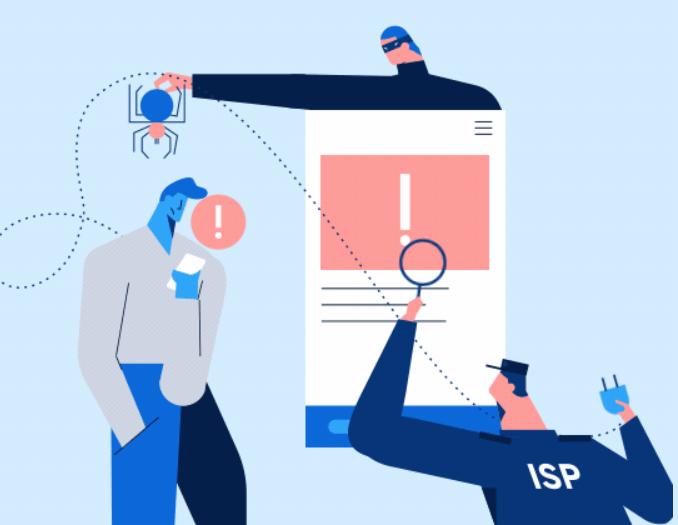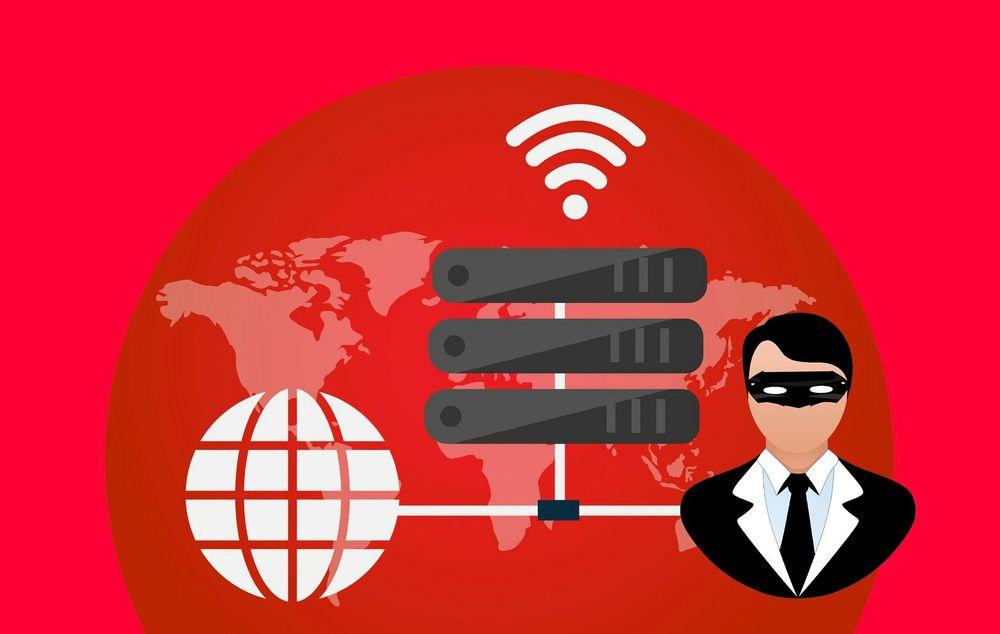VPNs and incognito mode are two of the most popular tools for online data protection.A VPN makes it difficult to track while surfing, while incognito mode offers you a browser that does not remember your course.But what exactly is the difference between VPNs and incognito mode?
What is incognito mode?
In order to understand what the difference between VPNs and incognito mode is, we first have to understand what the incognito mode and of course also a VPN do in general.So let's start with incognito mode.The private surf has many names, including infrudents in Microsoft Edge and Incognito Mode in Google Chrome.Your purpose is to give your browser a temporary amnesia.If you are in incognito mode, your browser does not save the data of the websites you visit.That means: no addresses, no cookies, none of the data you have entered - nothing converts.
In addition, incognito mode gives you a new browser status without cookies.So if you are registered on Facebook in your normal browser window, you can open a window in incognito mode, and Facebook does not see it as registered.
If you surf in incognito mode, nothing that you do in your browser will be saved by your browser yourself.Websites you visit are not displayed in your course or on the "Last visited" tab.If you register on a website, all you have to do is close the window and forget your browser that you have ever registered.However, this is already everything that can do private surfing.
So while none of your browser data is stored on your computer, this does not mean that they are deleted at the other end.Your IP address will continue to be displayed on websites that you visit, your internet service provider continues to see your activities and also system administrators at your workplace know which websites you have visited (instead of working).Incognito and other modes for private surfing do not make you anonymous online.
What is a VPN?
Here VPNs come into play.If you establish a connection to a VPN, a private server is connected to the Internet, so that for others the impression arises that this server accesses the website and not you.In other words on websites you access, your actual IP address is not displayed.Instead, the websites see the IP address of the VPN.
This improves your general privacy while surfing and offers the additional bonus that you can "fault" your location in any country in the world.If your VPN has a server in this country.It is indicated on websites that you can surf from the region of the VPN server and not from your own physical location.In this way, for example, you can handle geographical restrictions on Netflix or use online banking on vacation.This is also a great way to avoid online censorship and persecution in repressive countries.
All of this makes VPNs popular with a variety of users, including normal people who simply like their privacy.But also in human rights activists who live under repressive regimes or in people who use Bittorrent to download the latest films.
The gaps in VPN security
A VPN forwards it via an encrypted connection, which is referred to as a safe tunnel.Your ISP or a network administrator can find that you establish a connection to an external server - i.e. the VPN - but not to the websites you are connected with.
However, the use of a VPN does not guarantee complete anonymity.While your connection is disguised, you can still be persecuted if you remain registered on your social media or Google accounts.In other words: If you are registered with Google, then connect to a VPN, but continue to use your normal browser, in which you are registered with Google, then of course Google still knows who you are.The browser cookies stored in your browser can be used to follow them.
The biggest problem with VPNS:
The VPN service you use can see everything you are doing while it is active.In a way, they exchange tracking with their ISP or boss for tracking through their VPN.As part of their package, most VPNS promise to delete their protocols regularly.Protocols are the course of the connections that a user has made.This is generally referred to as "no -logs" directive.On paper, this means that the VPN has no records about you or your activities.This means that your VPN cannot pass this information on to your ISP, advertiser, law enforcement authorities or other persons.
In practice, however, not all VPNs are the same in this regard.For example, PureVPN helped the FBI in 2017 to catch a cyberstalker.This was possible because the VPN provider did not record user activity, but the IP addresses of the users recorded.In general, we recommend that VPNS users read the data protection guidelines and check the service a little before registering.You trust a VPN many trusting data.So first make your research.
Use of a VPN with incognito mode
While VPNs and incognito mode may fulfill different functions, they actually work very well together.Many of the gaps in VPN security can be closed in incognito mode, while the defects are covered by VPNS.If you use them together, it will be more difficult for third parties to pursue them and at the same time they protect their privacy in front of everyone with whom they share their computer.Hopefully we were able to help with this short article that they understand the difference between VPNs and incognito mode better and why they are better used together than alone.

You might also be interested in:
Do I really need an antivirus program for Windows 10?
You should know that via antivirus software
Millions of Android cell phones due to an error in Qualcomm chips endangered
← Previous Post
Next post →
Related Posts
How digital technologies make our lives easier in many ways
LiquidityX opens new trading platform for private investors
Tips for safety with online sports betting
Gaming chairs: You should pay attention to that!
Do you need a desktop computer?
The PC knows a lot about us
About David Maul
David Maul is a studied business IT specialist with a passion for hardware
All posts by David Maul →
Leave a comment
Cancel answers
Your email address will not be published.Required fields are marked with *.
Save my name, my email address and my website in this browser until I comment on again.



